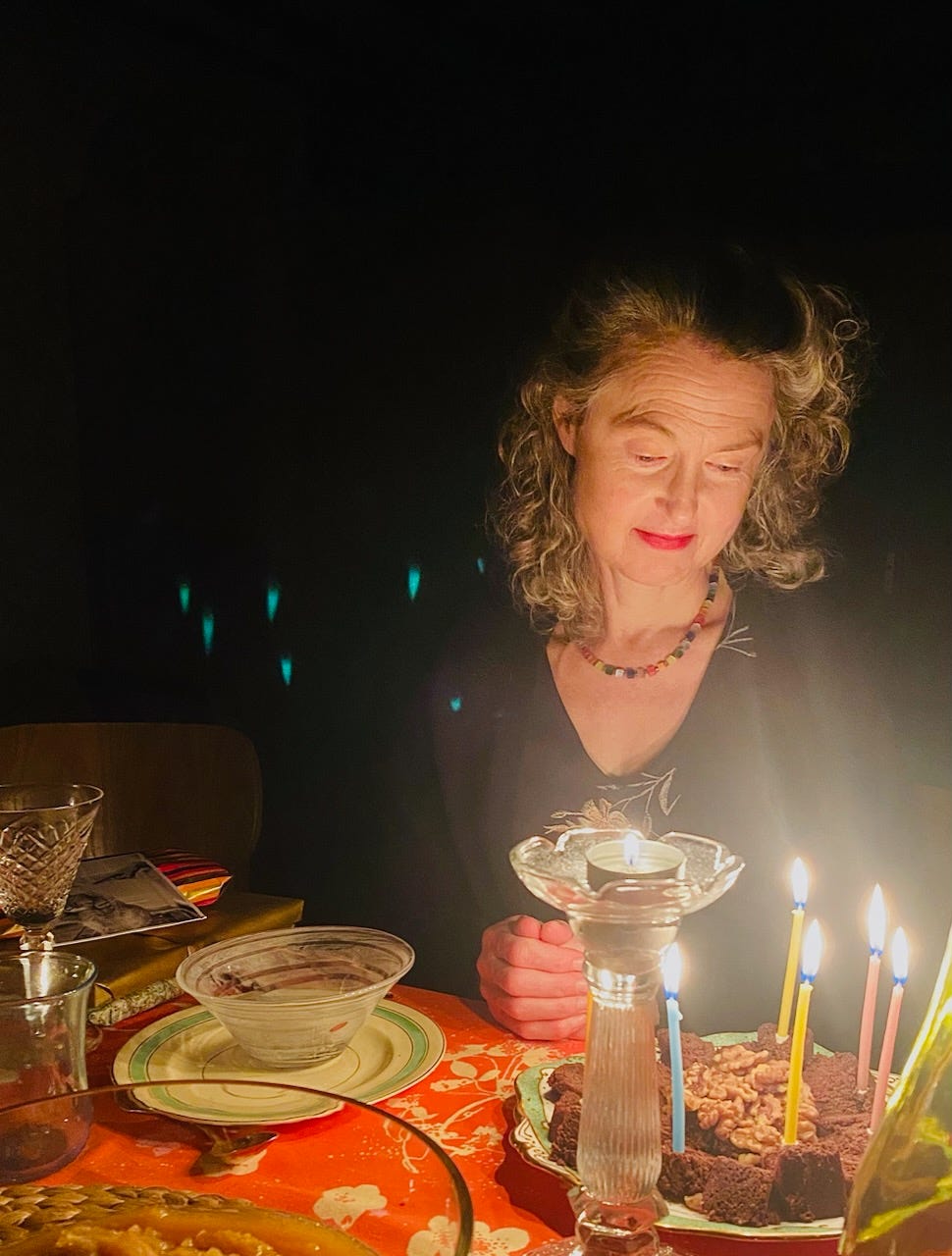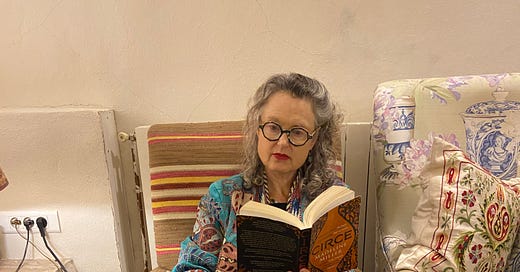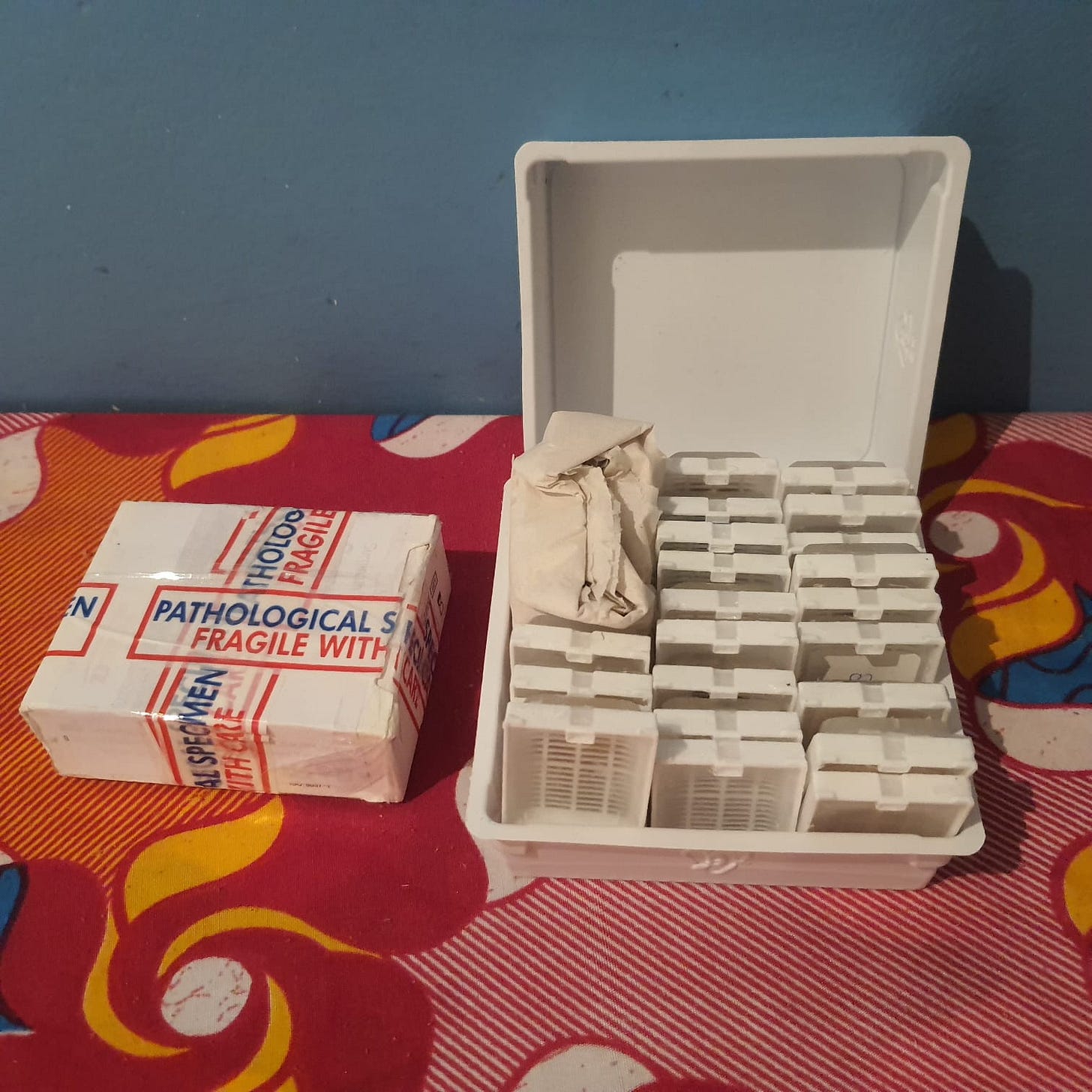What we talk about when we talk about comfort books
What kinds of solace can literature offer in times of peril?
There has been a flurry of articles lately about the “comfort books” we need in times like these. Yet the phrase itself often remains undefined.
Some people, as evidenced by the New York Times column I mentioned last week, find comfort in fantasy stories about animals. Others define comfort books as the predictable, improbable romances found in the stacks of airport bookstores, page-turning thrillers, or even in horror stories that appeal to the most reptilian part of our brains.
None of these categories of books would bring me any comfort. I cannot turn off my editorial brain long enough to get through a bestselling work of purely commercial fiction. When I have tried, I have closed the book feeling like I have just devoured a box of Twinkies (for my non-American readers, these are fluffy golden creamfilled cake sticks with a shelf life of seven years), nauseated and empty. I don’t feel fed by these books.
I feel the same about pageturning thrillers; I am not averse to the genre itself, if the book is well-written, with engaging and complex characters. But this is not often the case. When I look back on the popular thrillers I have read, I can’t remember a single thing about the plot or characters. Nothing has stayed with me. (George Smiley, however! He lingers. Because he was masterfully created).
It would be interesting to ask what kind of comfort we are seeking. Do we seek the comfort of an organized world and a tidy ending, with the murderer behind bars? Do we seek the illusion that marriage is the solution to all of our romantic longings? Do we merely mean distracting books, books that allow us to pretend that climate change is not going to destroy our children’s lives, that our leaders are sane and wise, that we will maintain control over our bodies? Books that push our heads further under the sand?
There are as many answers to these questions as there are readers.
In a scroll through the interwebs, I found an interesting definition of comfort books in the Berkley Fiction Review. Lindy Tweten writes: ““people tend to find solace in literature which preaches love and paints humanity in a positive light.” As examples, she mentions Neil Gaiman and Terry Pratchett’s Good Omens and Louisa May Alcott’s Little Women. In these books is a fondness for humanity despite its flaws. The protagonists each want to do good. This is a definition I understand and appreciate, because it leaves room in the reader for hope.
I too like a bit of hope in my books, while not requiring them to be unrealistic or even optimistic. The Book Thief, which I read recently at my daughter’s request, tells the darkest of stories and reveals humanity at its worst. But it also allows us to see humanity at its best. I am willing to plunge into the darkness of the Holocaust for the sake of the few flames of illumination. To learn how people pull themselves through peril and grief.
Several authors have recently posted lists of their comfort reads on their social media pages. It interested me to see that one famed author didn’t find herself interested in reading anything new; she only wants to read books she has read before. This is a perfectly legitimate, fruitful thing to do. Many books offer up more of their secrets and grow richer the second or third time around.
At the moment, I don’t share that impulse. I need new books more than I ever have. I need to read about characters whose struggle to make their way through the world, to grapple with the darkness of their own minds or the ways in which they have been mishandled, sheds light on our own.
The art of an exquisite sentence brings me joy. The mystery of a complicated person. An unpredictable story. I hunger for a constant flow of new ideas and writing, not the predictability of past reading. I want books by people different from me, books that will transform me, that will expose me to other cultures and ways of thinking. (If more men read more books by women, we would have a different world. Alas, boys and men read much less than women do, and are more likely to read only male authors. Please read this: https://www2.deloitte.com/us/en/insights/industry/technology/technology-media-and-telecom-predictions/2022/gender-gap-in-reading.html
There are so many lines from this article worth quoting. Am I allowed to quote the entire last parargraph? Just in case you didn’t click on that link? I feel compelled.
“Not only does reading fewer books hurt men and boys, but not reading books by and about women can hurt society. If female book characters are portrayed largely through the gaze of men, or with a male lens, this can reinforce a lack of understanding of, and discrimination against, underrepresented and non-male groups. Reading books, especially fiction, is related to social acuity, helping readers learn about other people and comprehend their motivations. When we read, we put ourselves in the characters’ shoes to see their points of view, fears, hopes, and experiences. For female authors and protagonists to be a closed book to many male readers can be unhelpful in an era where we strive for greater diversity, equity, and inclusion. Not to mention that capabilities developed by reading—including emotional intelligence, empathy, and imagination—are in high demand in the workplace and will likely be critical to employability in the future of work.”
When I was working as a bartender at our local pub in London, a lawyer came in every evening for just one pint. He always came alone and was chatty. When he discovered that I was a writer, he said “A lady author! I don’t think I have ever read a lady author!” He thought for a moment and then added. “Except for Enid Blyton.” It had literally never occurred to him to read a book by the other half of the population.
This was in 2018).
I digress. Also, there are so many books and authors I have yet to discover, whole shelves in my office of unopened books. I don’t have time for rereading.
My daughter and I spent a long time discussing this issue on recent hike up the small mountain behind our village. Why would people want to remain unchanged by literature? she asked. “I want books that absolutely wreck me, that rip my heart and make me sob on my bedroom floor for months. Books after which life will never be the same.” We share an aversion to books that are merely diverting.
Given that the definition of a comfort book varies so wildly from reader to reader, it is my fondest hope that the publishing industry will refrain from deciding for us all that we need one specific genre of comfort. By all means, keep churning out fluffy romances and gory thrillers, but please also keep publishing thoughtful, exquisitely crafted literature that burrows into our souls. We need more varied and diverse books than ever before, books to satisfy every hunger.
Here are just a few books that have fed my soul lately (these are not necessarily new books—it often takes me years to get to books I want to read):
Drive Your Plow Over the Bones of the Dead by Olga Tokarczuk (one of the most fascinating protagonists ever)
Girl in Translation by Jean Kwok
Vida by Patricia Engel
The Covenant of Water by Abraham Verghese
Tunnel of Mirrors by Ferne Arfin
A Gentleman in Moscow by Amor Towles
Cantoras by Carolina de Robertis
Blood of the Dawn by Claudia Salazar Jiménez
The House on Beartown Road by Elizabeth Cohen
I would love to hear how you define comfort books, and what books you are seeking and relishing!
I can’t help but add, just before posting this, that I am not sure that at the moment any book has the power to give me true comfort. My rage and grief grows daily. And I am not sure I want to be comforted. I don’t even like the word “comfort.” Just like I loathe the word “contentment.” Perhaps this is not a time that we should be comfortable. Perhaps it is too dangerous to crawl into our literary caves and disappear into books, when the world needs us to do so much more.
In other words, I have lots of conflicting thoughts. And I would love to hear yours.
An unexpected gift:
Yesterday I had my fifth chemotherapy of this cycle. (No, my bowels still show no sign of working on their own, thanks for asking. So I have been in and out of panic, longing for a sign of hope). After my ninth infusion on Christmas Eve, I will have a scan and a meeting with my oncologist at the end of the month. If the taxol is working, we continue for nine more doses. If not, well. That’s when the other thing that happened yesterday comes into play.
My friend Bern, an artist and writer who is one of my very favorite people in London and in the world, yesterday carried out a mission of immense generosity. For months, my oncologist in Paris, the one in charge of several clinical trials, has been trying to get my tumor bloc from London. My London doctors took forever to get back to her, and when they did, they said that because of Brexit they were unable to send my samples across borders to France. I had to come pick up my samples myself, they wrote.
This isn’t entirely practical when I am in the middle of chemo, I responded. Though I will do it if I must. However, could someone else possibly pick up these samples for me?
Yes, as long as they had a letter of authority from me granting them permission.
Tim was willing to go pick up my samples. But it would have been tricky for him as well, as he has numerous commitments here, mostly involving shuttling me to chemo and Theo to school and back and to extracurricular activities and appointments.
I did not ask Bern to carry out this task. It did not occur to me to ask him. He works full-time and he is a father. He is busy. The samples would need to be picked up and delivered on weekdays when hospitals were open. But when we were discussing the situation during a Zoom call, he offered. “I’ve been working quite a lot,” he said. “I can take time off for this.”
So Monday afternoon, he picked up my errant cells from Charing Cross Hospital, and Tuesday morning he set off for Paris. He sent me photos and reassuring updates along the way. And he delivered my cancer cells to the pathology lab of Gustave Roussy.
If Bern were not already one of my favorite people, he would be now.








